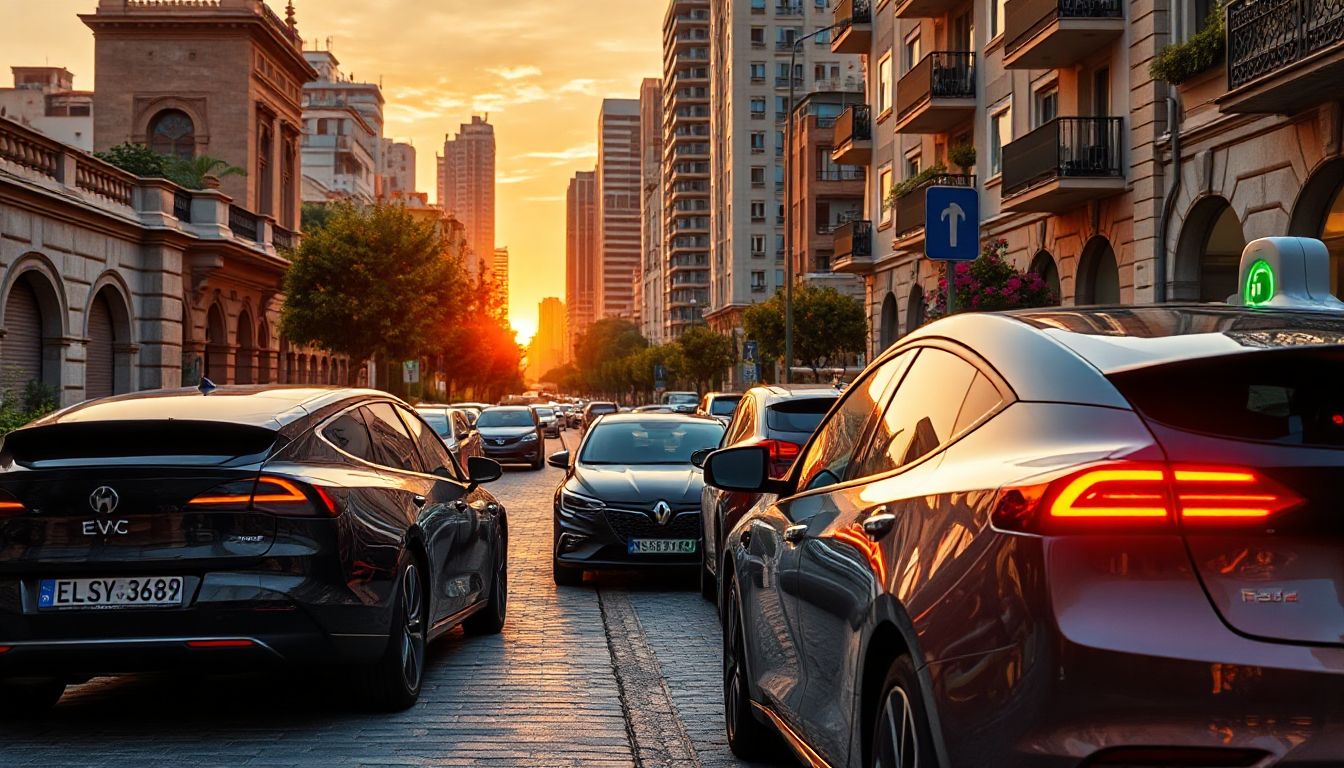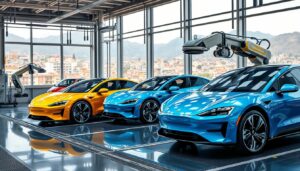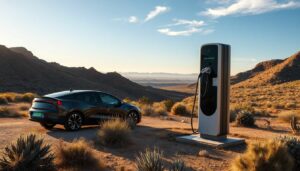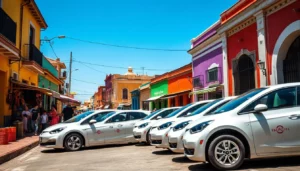Introduction
The world is shifting toward electric vehicles (EVs) as countries seek cleaner ways to move people and goods. Governments, businesses, and consumers are all playing a part in this new era. With climate change a growing concern, EVs promise a way to cut pollution and decrease oil reliance.
Lebanon faces serious environmental and economic challenges, from air pollution to high fuel imports. Electric vehicles could be a fresh start, helping Lebanon clear the air and save money. As the country explores greener options, EVs stand out as a promising solution for a better future.
The Rise of Electric Vehicles in Lebanon
Market Overview and Adoption Trends
In Lebanon, EVs are just starting to gain ground. Last year, less than 1% of cars on the road were electric. But interest is growing fast. As more people learn about EVs, sales are climbing.
A mix of factors pushes this trend. Recent policies and incentives encourage buying EVs. Even though Lebanon’s economy is tough, some buyers see EVs as smart investments. Local dealerships have started offering electric models from brands like Nissan, Hyundai, and Renault. Market growth looks promising despite hurdles.
Key Drivers Behind EV Adoption
Lebanese consumers are becoming more aware of the environmental toll of traditional cars. Many want cleaner options to help reduce pollution.
Saving money on fuel and maintenance is another big motivator. EVs cost less over time because they need less oil, and repairs are simpler. International groups and local governments also provide rewards or discounts to attract more buyers.
Challenges Hindering Widespread Adoption
Even with growing interest, several obstacles block wider EV use. Lebanon’s charging network is still weak, with just a few charging stations in big cities. Expanding this infrastructure is key but complicated by funding issues.
High import taxes and the initial price of EVs also make them hard to afford. Plus, many people don’t fully understand EVs or their benefits, which slows the shift. Awareness campaigns are needed to change perceptions.
Infrastructure Development and Policy Framework
Charging Infrastructure in Lebanon
Charging stations are rare outside major cities in Lebanon. Most EV owners charge at home, but this isn’t enough. Government and private companies are working to build more public chargers.
Some initiatives include installing fast chargers near highways or popular shopping centers. If you’re an EV owner, it’s smart to find nearby stations or consider installing a charger at home. This makes daily use easier and less stressful.
Government Policies and Incentives
Lebanon has started to introduce policies to encourage EV adoption. Some include reduced registration fees or tax cuts for electric cars. Although these measures are small, they show a desire to support greener transport.
Future plans could involve more incentives and better laws to promote EV use. International aid and NGOs are also helping Lebanon create a strong EV ecosystem by sharing expertise and funding projects.
Challenges and Opportunities in Infrastructure Expansion
Building reliable charging stations isn’t easy. Regulatory hurdles and limited funds slow progress. But there’s huge potential in partnerships between the government and private firms. Successful projects in Beirut and other cities prove that expanding charging networks works. More public-private collaborations could speed things up.
Environmental and Economic Impact
Benefits of Electric Vehicles for Lebanon’s Environment
Switching to EVs can drastically cut air pollution in Lebanon. Cars produce smog and greenhouse gases that hurt health and change our climate. EVs produce no tailpipe emissions, helping Lebanon meet climate goals and clean the air in cities like Beirut.
Some local studies show a reduction in pollution levels where EV use increases. Every new EV on the road means fewer fumes and a healthier environment.
Economic Advantages
Reducing reliance on fuel imports saves Lebanon millions of dollars annually. Electric cars cost less to run, and their maintenance is simpler.
Growing EV sales could create jobs, from manufacturing to servicing vehicles. New work opportunities will benefit communities and boost local businesses, especially as demand for chargers and repairs grows.
Potential Barriers and Solutions
One challenge is ensuring EVs run on renewable energy, like solar or wind, to maximize environmental benefits. Making EVs cheaper is another priority, which could involve lowering taxes or offering more incentives.
Supporting local companies to make parts and recycle batteries will keep costs down and create jobs. This approach also helps Lebanon reduce waste and pollution.
Consumer Perspectives and Market Dynamics
Consumer Attitudes Toward EVs
Many Lebanese people still see EVs as expensive or risky. Surveys show some worry about battery life or lack of charging stations.
Yet, stories of early adopters prove EVs can be a good choice. Influencers and eco-conscious groups are helping change opinions and build trust.
Market Challenges and Opportunities
Not many EV models are available in Lebanon, limiting choices. Financing options like leasing could help customers buy without paying all upfront.
Local dealerships are starting to stock electric cars, and international brands are showing interest. These can boost competition and bring better options for buyers.
Actionable Tips for Prospective EV Buyers
- Research different EV models to find one that fits your needs and budget.
- Locate nearby charging stations or consider installing a charger at home.
- Think about total ownership cost—not just purchase price but also savings on fuel and maintenance.
- Explore available government incentives to make your purchase more affordable.
Future Outlook and Strategic Recommendations
Trends and Predictions for Lebanon’s EV Market
The market should grow faster over the next 5 years. With more government support and better infrastructure, more Lebanese will choose EVs.
Regional developments, like new charging hubs and international aid, will boost adoption. Battery tech keeps improving, making EVs cheaper and more efficient.
Policy and Industry Recommendations
- Ramp up government incentives for EV adoption and reduce taxes.
- Prioritize expanding Lebanon’s EV charging network across urban and rural areas.
- Launch national awareness campaigns to inform citizens about EV benefits.
- Support local industries in EV parts manufacturing and battery recycling.
Role of Stakeholders in Shaping the Future
The government, private companies, NGOs, and consumers all have a part to play. Collaboration is essential to develop a sustainable transportation system. Together, we can build a cleaner, greener Lebanon.
Conclusion
Electric vehicles have the power to transform transportation in Lebanon. They can drastically improve air quality, cut fuel dependency, and boost the economy. But success depends on setting up better infrastructure, strong policies, and raising awareness among the public.
If Lebanon embraces EVs now, it can lead the way to a healthier, more sustainable future. Let’s drive this change and speed toward a cleaner tomorrow.




